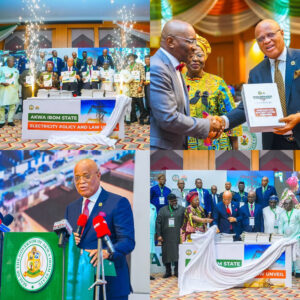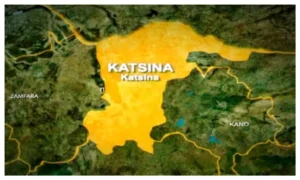
Amnesty International has condemned the heavy-handed response of security forces to nationwide protests organized by the #TakeItBack Movement, calling for a thorough investigation into reported assaults and arrests of demonstrators and journalists in Abuja, Port Harcourt, and Yobe.
Despite prior warnings from the police, youths across several states took to the streets on Monday to protest a range of national issues, including the alleged misuse of the Cybercrime Act, economic hardship, and the political crisis in Rivers State.
In Abuja, police dispersed demonstrators with tear gas in the Maitama area, disrupting a rally led by human rights activist Omoyele Sowore. The protest coincided with the grand finale of the National Police Day celebration at Eagle Square, causing significant traffic as roads were cordoned off by security personnel.
The movement’s National Coordinator, Juwon Sanyaolu, described the protest as a stand against “increasing authoritarianism” and worsening economic conditions. Rex Elanu, the group’s FCT coordinator, confirmed that two members were arrested, including the movement’s treasurer, and that protest materials were seized by police.
In Rivers State, protesters were met with similar resistance as security operatives deployed tear gas and reportedly beat several participants. Amanye King, the state coordinator of the movement, decried the crackdown, saying they were peacefully demanding the repeal of the Cybercrime Act and the reinstatement of the elected state governor.
“We have a social contract with the governor, not with a sole administrator. We will not stop protesting until our voices are heard,” King said.
In Yobe, the protest never took off as five members, including the state coordinator Abubakar Jawa, were arrested while gathering. However, the police in Yobe denied making any arrests, claiming no group approached them for security coverage.
Lagos protesters were also blocked from reaching the State Assembly, where they intended to submit a letter of demands. Starting from Ikeja Under Bridge, they marched peacefully but were stopped at barricades leading to the government complex in Alausa. No state official addressed the group.
In Osun and Oyo states, similar demonstrations took place. In Osogbo, youths condemned the Cybercrime Act as a threat to free speech. In Ibadan, protesters at Iwo Road warned federal authorities against using repressive laws to silence dissent. Both demonstrations were monitored by security agencies without major incident.
Amnesty International expressed deep concern over the assaults and detentions, labeling the incidents as unacceptable. “Protesters and journalists were beaten in Port Harcourt. In Damaturu, four activists were unlawfully arrested. These atrocities must be investigated,” the organization said in a statement.
Meanwhile, the Federal Government acknowledged the grievances of the protesters but urged restraint. Youth Development Minister Ayodele Olawande emphasized the right to peaceful protest while warning against any form of violence or damage to public infrastructure.
“Everyone has the right to protest. If I had the time, I’d join them. But protests must remain peaceful. We must not destroy what we’ve built,” Olawande stated. He encouraged protesters to find non-disruptive ways to express their concerns, assuring them that the government is listening.
The #TakeItBack Movement has vowed to sustain the demonstrations until their demands—including the repeal of the Cybercrime Act—are met. Plans for further protests in August are already underway should the government fail to act.






![[PHOTOS] Arewa Offa, Mustapha Amidat Concludes Skill Acquisition, Exhibition Programme](https://newsbulletin.com.ng/wp-content/uploads/2025/09/IMG-20250920-WA0011-300x300.jpg)
